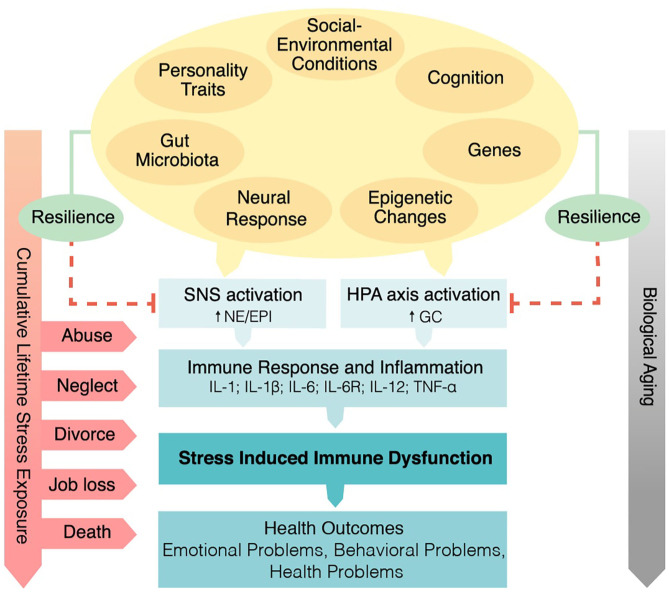Figure 1.
Psychobiological mechanisms linking spousal bereavement and health from the perspective of the Social Signal Transduction Theory of Depression (20). The interplay between genetic factors, personality traits (e.g., neuroticism), and social-environmental conditions during childhood and adolescence (e.g., social/financial stress, uncertainty, abuse, or neglect) are hypothesized to play important roles in shaping individuals' neuro-inflammatory sensitivity to later-occurring life stressors, including interpersonal loss. Exposure to early life stress and subsequent stressors are hypothesized to heighten sympathetic nervous system and hypothalamic-pituitary-adrenal axis dysregulation, and to promote increased inflammatory activity in response to a significant loss. If chronic, elevated inflammatory activity can in turn lead to a variety of adverse emotional, behavioral, and health outcomes. SNS, sympathetic nervous system activation; NE, norepinephrine; EPI, epinephrine; HPA, hypothalamic-pituitary-adrenal; GC, glucocorticoid; IL-1, interleukin-1; IL-1β, interleukin-1beta; IL-6, interleukin-6; IL-6R, interleukin-6 receptor; IL-12, interleukin-12; TNF-α, tumor necrosis factor-α.

